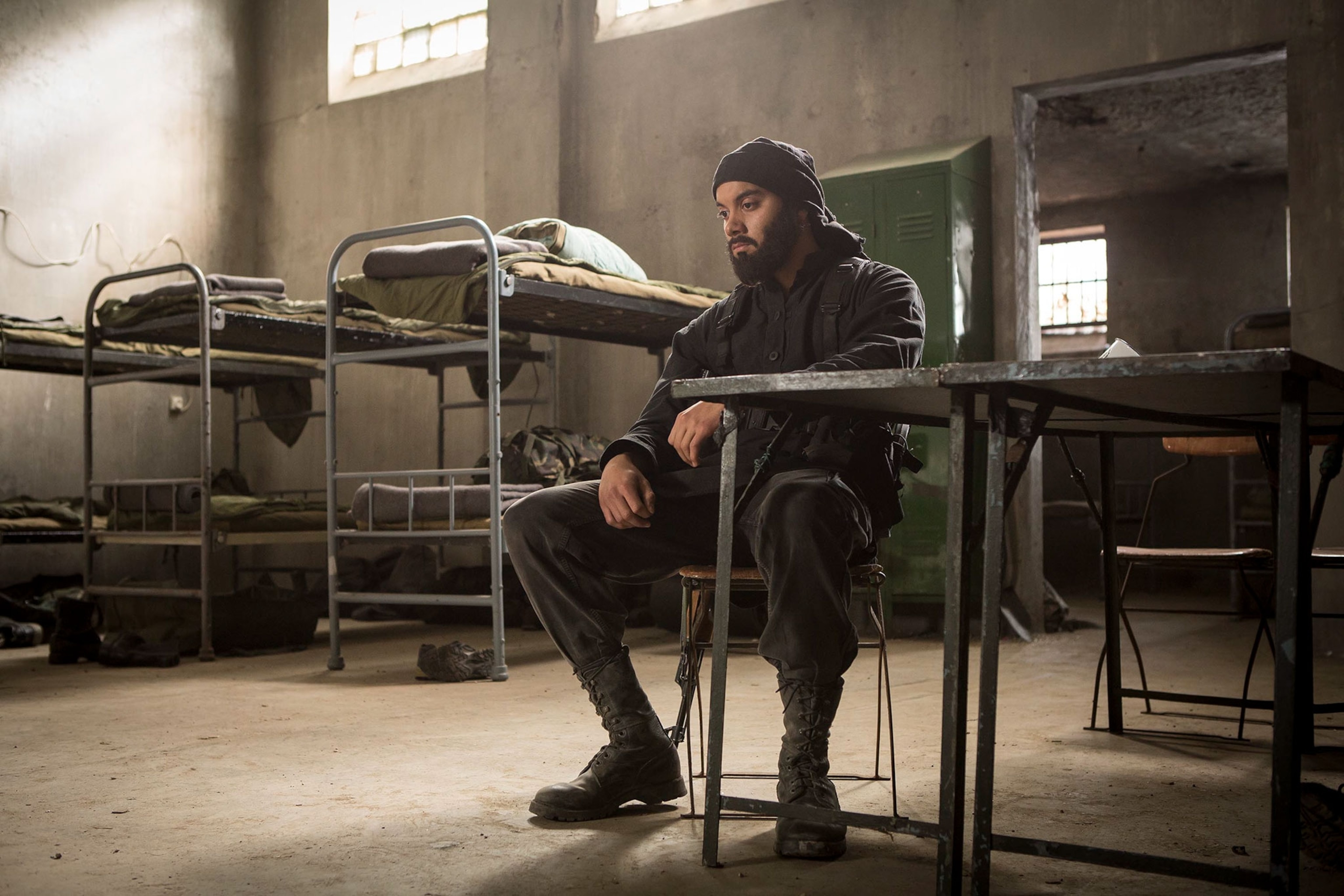Why Some Young Europeans Are Joining ISIS
Peter Kosminsky’s new drama, The State, follows four young Brits on their way to Syria.
British director Peter Kosminsky calls ISIS “a blood-drenched death cult.”
But his portrayal of the group in The State, a fictionalized account of four young Brits on their journey to join ISIS in Syria, has drawn criticism from some on social media who say it could humanize a terrorist organization.
Kosminksy, who directed the television series Wolf Hall and the film White Oleander, says those concerns are overblown: “Come back and talk to me when you’ve seen all four episodes.”
Still, he knew the series would cause a stir since he began doing research for it three years ago. That work included poring over court documents involving ISIS recruits leaving and attempting to re-enter the United Kingdom and social media posts from suspected ISIS recruiters.
Kosminsky spoke to us about the challenges and lessons of filming The State, which premieres on National Geographic on September 18 and 19 at 9/8c, with two episodes each night.
Was the potential for humanizing ISIS a concern of yours while filming The State?
There’s a tightrope that you have to walk along very carefully. Right from the start we tried to position The State as an antidote to simplistic thought. You’re asking about humanizing the people who are joining ISIS. They do some pretty monstrous things—they’re essentially a blood-drenched death cult—but one of the most difficult things to grapple with is that although they do monstrous things, they are not individually, necessarily, monsters.
When you see some of the violent crimes committed by ISIS, any normal human reaction would be to think these people are psychotic: They aren’t like us, they are criminally insane. Unfortunately, the challenge that this confronts us all with is that they may not be.

We have to try to grapple with the fact that if we’re ever to combat this then we have to understand that we can’t just write these people off as psychotic. As tempting and comfortable as it might be to do so, we have to engage with the uncomfortable fact that they are not necessarily insane.
Do you think the main characters lose their sanity in a way after joining the terrorist group?
These young people are extremely excited when they first join the Islamic State. They talk about finally having a sense of belonging, about being able to practice their faith without facing prosecutorial racism. But what the research also reflected is that the day-to-day reality of it, the brutality and violence, the restrictions on their lives, really started to make their mark.
Did you have the motivation to combat simplistic thinking when you began conducting your research, or did you have a sort of a-ha moment?
It was more the latter, really. My starting point was purely journalistic. Three years ago, when I started on this project, I really didn’t know much about the subject, if I’m being honest.
We had a lot of material in the press about the radicalization of young people here in [the United Kingdom] and other European countries—how they were being radicalized through peer pressure, but no information on them at all once they actually got into Syria. What I wanted to know was: Can we discover what happens when they get there?
What do you think are these young people’s motivations for joining ISIS?
That’s almost the central question, really. From the research, I saw one guy said, “Yesterday I was a laborer at a building site—today I’m doing things that are getting the attention of the President of the United States.” I thought that was an incredibly revealing statement, that this young man saw himself as completely irrelevant, marginalized, unable to have any impact on anything, unless he joined this organization. Suddenly he felt that he was at the center of things, and that his own personal actions were causing furrowed brows in the very center of world power.
It’s hard to find a common factor that unites the people who chose to travel to Syria and join the Islamic State. They come from a variety of socioeconomic and racial backgrounds. Some have criminal pasts, and some do not. Some are well educated, and some have no education. The only thing that seems to unite them is a shallow connection with their faith.
There was a famous occasion where a group of young men were traveling from Britain to Syria. When they were stopped, they were found to have a book called Islam for Dummies in their packing. What research suggests is that the deeper the knowledge of your faith, the less likely you are to make this decision. One has to assume that they are misguided, but sincerely misguided.
This interview has been edited and condensed for clarity.